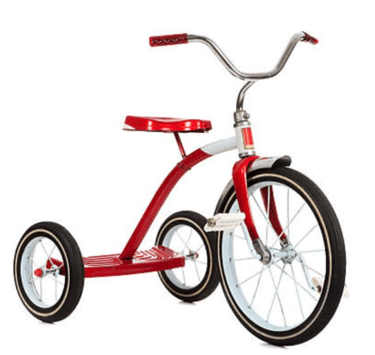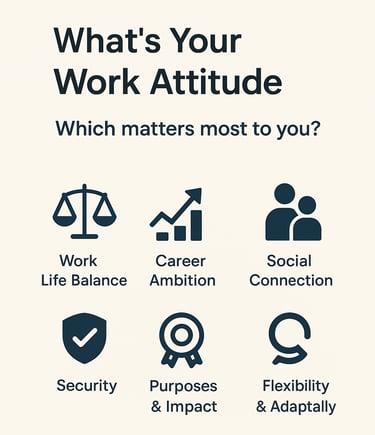A better way...
Explore insightful articles on work, personal life, and relationships for personal growth.
Money, Job, or Location — Which One Is the Big Wheel?
Wouldn’t it be nice to have all three — money, job, and location — perfectly aligned? In reality, much like a tricycle, only one can be the “big wheel” that steers and drives us forward. The other two, while important, follow behind.
So, which one is steering and driving your tricycle right now — and why does it matter?
Looking back at my own career (I’m now on an extended career break), I can clearly see the big wheel shift over time: first money, then job, and later location. At each stage, there was often a tension between what I thought I valued (conscious) and what I actually valued (subconscious).
As we move through life — single, married, becoming parents, earning promotions, relocating, or switching careers — our roles and identities evolve. What once drove us may no longer be our true big wheel. Recognizing that shift matters, because our decisions and priorities need to evolve alongside our lives.
The key is not choosing the “perfect” wheel, but knowing when it’s time to let a new one lead.
A few questions to ask yourself:
Which wheel is truly steering me right now — money, job, or location?
Is this the wheel I want to be steering, or just the one I’ve allowed to take over?
Have my priorities shifted with new roles, responsibilities, or life stages?
What would change if I let a different wheel take the lead today?
By pausing to reflect, we give ourselves permission to realign with what matters most — not what used to matter, but what matters now.


In an ideal world, it’s clear when a team is clicking, it shows up in the little things.
· An Amazon driver insists on delivering a package from the gate to your door as it is pouring rain.
· A waitress making eye contact and turning the different pastries, so they face the right way towards the customers.
· A supermarket employee arranging fish into a mosaic.
Conversely, when the crew members are not in synch, this is clear too. The team is off course and almost fighting one another.
Skills, experience, and communication styles are important, but one thing I believe that may be overlooked is understanding team member’s work attitude: mindset, perspective, and daily disposition toward work.
Being fortunate to have lived in Germany and Italy for many years—I’ve seen how cultures approach work differently. Germans keep work and private life separate. Italians weave them together more naturally. Both reflect a different attitude towards work and personal identity.
I’ll never forget when I introduced myself to my Italian neighbor Renato as a “Personal Financial Manager.” He stopped me:“For me, you are just Greg, my neighbor. I don’t care about your occupation.”That moment reshaped how I saw the role of work in identity is not something the Italians share.
💡 Team exercise: Pair & Share – What Drives You?
· Complete the widget.
· Pair teammates with contrasting profiles (e.g., Driven Achiever + Grounded Harmonizer).
· Share one category that scored high and why it matters. Listen to your partner’s.
This builds empathy, storytelling, and respect across differences.
In the end, success isn’t about rowing harder—it’s about rowing together.
💬 What’s one work attitude you’ve seen that helped a team row in sync—or threw the boat off balance?


Work Attitudes – What’s Yours and What's your Teams?
Contact us Directly
rightstartitaly@gmail.com
© 2025. All rights reserved.
Connect
Disclaimer: The content on Right Start Italy is informational and educational purposes only. While every effort is made to ensure accuracy and relevance, the information presented may not reflect the latest developments or specific circumstances. Readers are encouraged to seek professional advice or consult experts in areas such as legal, financial, medical, or other specialized matters before making decisions based on the information provided.
User Responsibility:
By using this website, users acknowledge that they do so at their own risk. Right Start Italy will not be held liable for any losses, damages, or inconveniences arising from the use of this site or reliance on its content.
Copyright Notice:
All content, including text, images, and graphics, is the property of Right Start Italy and Learning unless otherwise credited. Unauthorized use or reproduction is prohibited. For questions or concerns, please contact us via the Connect Section.
